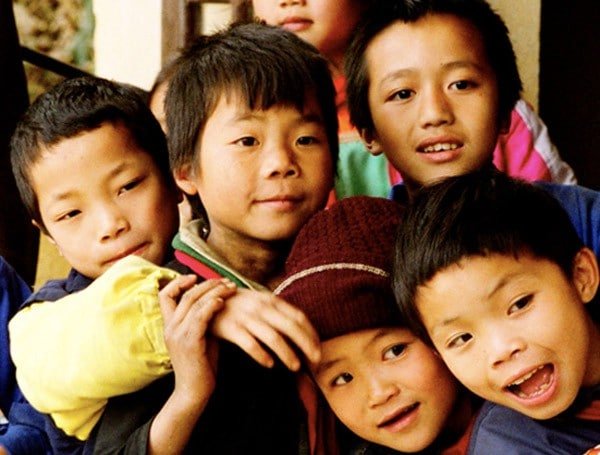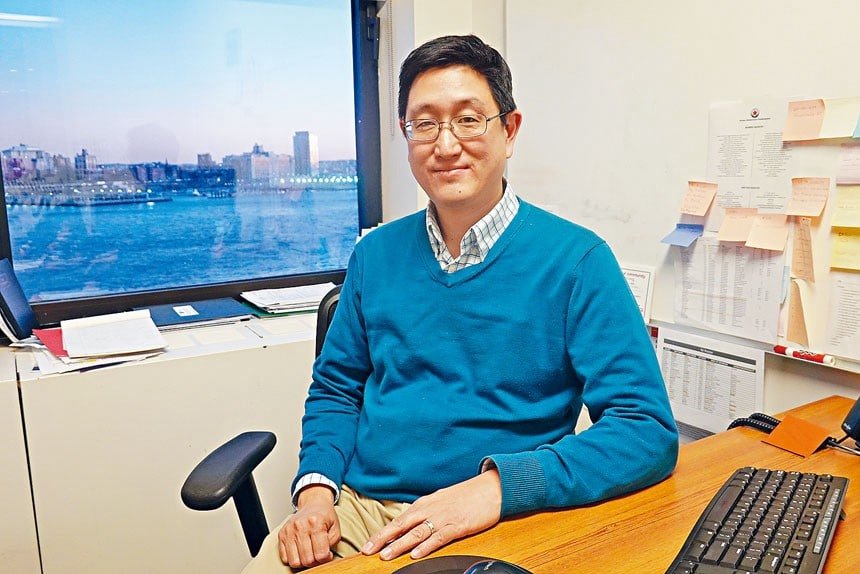‘Satellite babies’ in New Jersey’s Chinese community are most at risk of being undercounted in 2020 Census
This story was first published in Sing Tao Daily on January 31, 2020 by Ke “April” Xu. It was edited by Anthony Advincula.
Children of Chinese descent under five years old in New Jersey are more vulnerable to being undercounted in the upcoming decennial Census because of the prevalence of “satellite babies” among Chinese Americans, according to an Asian American advocacy group.
“The ‘satellite babies,’ who are mostly born in the United States, are impossible to count,” said Howard Shih, policy and research director of the Asian American Federation. “Because they end up being in China before their school age — from 0 to 4 years — they are not getting counted during the [implementation of the] Census.”
And with no accurate count of these children, it will have a negative effect not only on Chinese Americans but also on the Asian community in general, he added. The federal budget allocation for these children could also end up being lower than what is actually needed.
The term “satellite babies” refers to U.S.-born children who were temporarily sent back to the home country of their parents or extended families when they were babies to be reared mostly by their grandparents or aunts. This reverse-migration separation is common among Chinese immigrant families, so parents can remain working in the United States and support their repatriated children.
A 2009 study of 219 pregnant Chinese women in the New Jersey and New York areas found that 57 percent of them were strongly considering sending their babies to China, and majority within that group said they intended to bring their children back to the United States once they turned four.
“When satellite babies suddenly return [to America], there is a jump in the number of children. What happens is that the Census Bureau doesn’t have their information. So for the next 10 years, they are missed,” Shih said.
In New Jersey, he noted that Census Bureau typically updates the numbers each year based on birth records, death records and who are immigrating to create new estimates of how many children are there in the state.
“If satellite babies are not in the original baseline, the Census Bureau would not have a way of including them,” Shih added. “And when they come back in, and they are not included in those numbers for the next 10 years, [federal and state] funding does not help them and their schools.”
According to the 2010 Census data, there were about 150,000 children in hard-to-count areas in New Jersey, which comprised 28 percent of the state’s total population of children under five years old.
With nearly $23 billion in federal funding at stake for various programs, such as Medicaid, SNAP and Head Start, all children should be counted in the upcoming 2020 Census.
But if satellite babies in New Jersey are not getting counted, local schools may not be able to plan for and obtain funding from federal, state and local sources that will pay for the education and other public services for these Chinese American children once they return.
“School districts cannot build new schools based on new or future demands. Even if the satellite babies are not in school right now, the data impacts the next 10 years of their lives,” Shih said. “They would almost complete their elementary school at a disadvantage.”
New Jersey’s Asian population has grown by more than 1,400 percent since 1970, from just under 48,000 Asians to more than 725,000 residents — including 134,442 Chinese in 2010, according to the 2010 census data.
The overwhelming majority of the state’s Asian residents are immigrants, or those who were not born in the United States.
Immigration and the 2020 Census
Still, immigration status plays a role in the Chinese immigrant community. For many, lack of awareness about the Census is another reason that they are not engaged.
While a survey conducted by Asian Americans Advancing Justice shows that 47 percent of Asian Americans know that everyone in the country, regardless of immigration status, is mandated to be counted, many undocumented Asian families or those with mixed immigration status still fear that their participation in the Census would put them in a harm’s way.
“I think they don’t necessarily trust the Census because they are afraid that their participation will make them a good target by immigration authorities,” Shih said.
But almost every advocacy and community group across the state is trying to convince immigrants that they shouldn’t be afraid because of the many laws in place which make it impossible for the Census Bureau to share information with any other government entity.
“We need to let the immigrant community know that every count in the Census matters. But their immigration status doesn’t matter. The data is used for school planning, healthcare, transportation and all other stuff that government is funding,” Shih added.
Everyone needs to be counted because everyone is using those services one way or the other, he added, and if they are not counted, then they and their community will miss out on the funding that’s available.
A substantial portion of the Asian community, including Chinese families, has never been through the U.S. Census before. And to increase awareness, advocates say, it is necessary to help Chinese American leaders understand the importance of the Census and convey the information to the community members that they serve.
“That’s one of the key things that we do in New Jersey. We provide the tools and knowledge to the community leaders, who are the trusted voices to the community,” Shih said. “We ask them to help us tell community members that they should fill out the Census form to show the U.S. government and the world that your community is significant.”


